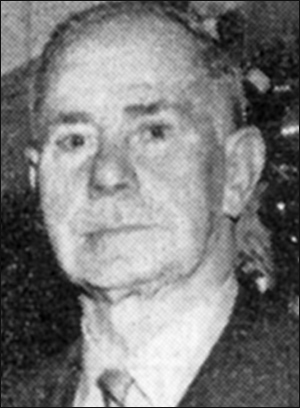 |
|
Mr Herbert Long
|
|
The volunteer spirit of the Burton Latimer Division of the St. John Ambulance Brigade is epitomised in 70 year old
Mr.
H.
Long
of
125 Station Road
who has been connected with the Division since it began in 1925. It is a far cry from the hand cart of 33 years ago to the modern radio ambulance that can be summoned immediately by dialling 999 but, with the increase of centralisation, local volunteers such as Mr.
Long
find themselves the last of their line. When the Burton Latimer Division of the St. John Ambulance Brigade began being taken ill was far more of a misfortune than it is today. “You would have to be half dead before they would take you to hospital” says Mr. Long, who at that time would think nothing of going five miles or more in any kind of weather to pick up someone on what was no more than a stretcher on wheels.
“We never dropped anyone,” says Mr. Long “we were too well trained”. They had to be for they had no nurses at that time, the nursing division was formed in 1930. Mr. Long learnt first aid when he was a stretcher bearer in the Territorial Canadian Grenadiers Guards at Winnipeg in 1913. He worked as a plumber out there and came back to England in 1914 - “the biggest mistake I have ever made in my life”. He has made good use of his training having always been connected with welfare work. “ I will probably die in harness” he says. He was a member of Burton Latimer Fire Service until he joined the Ambulance Bridge. During the war he attended a civil defence course at Chesterfield and became Divisional Superintendent of the Ambulance Brigade which became incorporated into the Burton Latimer Civil Defence Corps.
Although Mr. Long realises that the National Health Service is bound to have its effect on part-time ambulance men he is a keen critic of centralisation. “If you want an ambulance in an isolated place” he says, “up to it there, you will get someone to run it”. Before National Health every family in Burton Latimer was asked to pay 2s. towards the upkeep of the Brigade, and 93 per cent of them did so. A gala day in 1930 raised £170 for their first ambulance, a converted Armstrong-Siddeley touring chassis, with which they were often called to take cases to London hospitals. Now they have a modern Bedford ambulance but, he fears, they are likely to lose it. The County Council pays for its own full-time ambulance staff and is not likely to go on subsidising part-time workers.
|